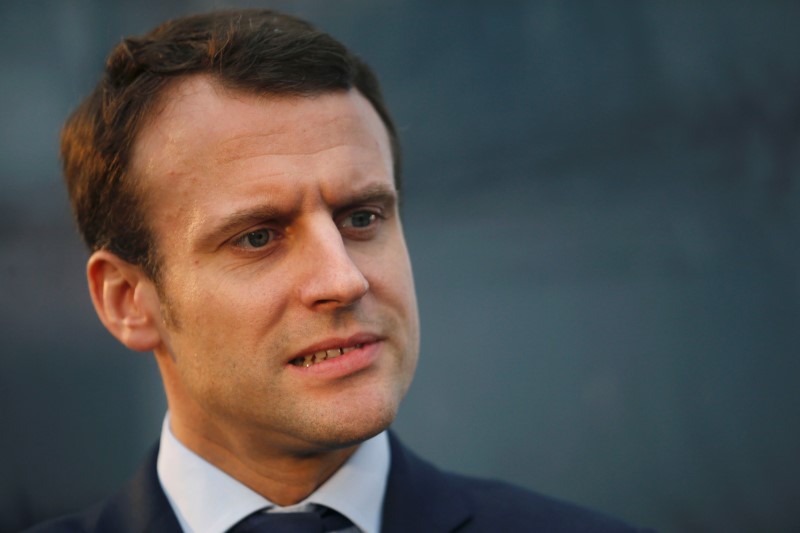By Geoffrey Smith
Investing.com -- French bonds and stocks staged a modest relief rally on Monday after incumbent President Emmanuel Macron won the first round of voting in elections to the Elysee, beating the populist right-wing candidate Marine Le Pen.
With almost all votes counted, Macron led Le Pen by just under 4 percentage points, on 27.8% compared to Le Pen's 23.9%. Macron will now face a run-off against Le Pen in two weeks' time, in a repeat of the 2017 elections.
An opinion poll carried out by the research firm Ipsos pointed to a Macron victory in the second round by 54% to 46%. However, an earlier poll for the state broadcaster TF1 by the IFOP polling company projected a much tighter race, with Macron winning by only 2 points, 51%-49%.
By 2:30 AM ET (6:30 GMT), the yield on the French 10-Year bond was down a single basis point at 1.25%, having soared to a seven-year high of 1.30% on Friday on concern that Le Pen might win. French CAC 40 stock futures were down 0.3%, slightly outperforming European peers after a week of heavy underperformance.
The euro, meanwhile, was up less than 0.1% at $1.0880, having fallen to its lowest against the dollar in over a month on Friday.
The outcome of the second round will depend on whether Macron can mobilize enough voters from the traditional center of French politics to neutralize the surge in support for candidates on the extremes of right and left. The far-left candidate, Jean-Luc Melenchon, came third with 21.1%, while another far-right candidate, Eric Zemmour, polled 7.1%. By contrast, the candidates of the two traditional center-left and center-right parties between them polled only 6.5%.
Macron's lead over Le Pen had shrunk massively in the three weeks leading up to the poll, as Le Pen campaigned effectively on issues such as the cost-of-living crisis and against Macron's plans to raise the national retirement age. Her policies, which foresee a steep rise in subsidies and state intervention, have been criticized as irreconcilable with the Eurozone's budget rules and would put the country on a collision course with Germany, the European Commission, and the European Central Bank.
